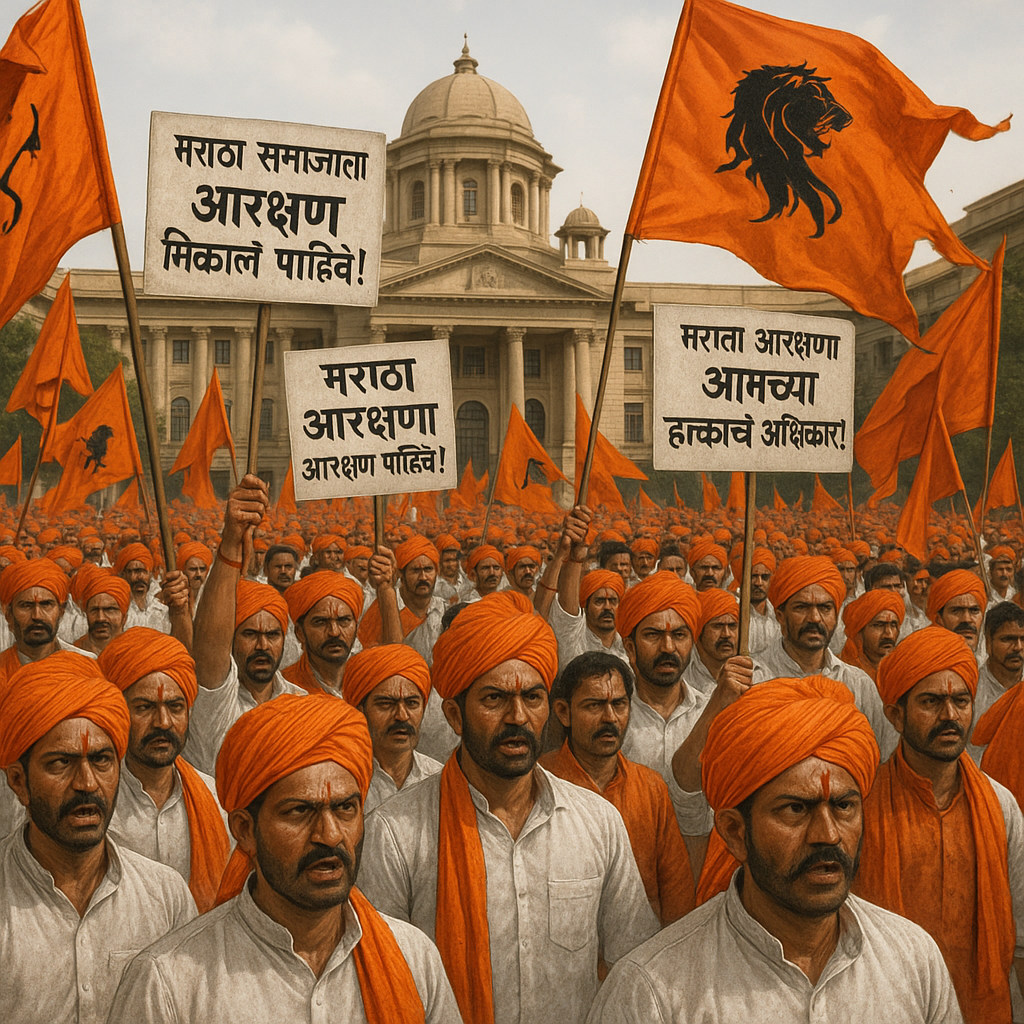The recent Maratha reservation protests in Maharashtra culminated in significant policy concessions by the state government on September 3, 2025, addressing long-standing demands for social and educational upliftment of the Maratha community. Demonstrators, led by various community leaders, secured amendments to the government’s quota framework, reinforcing the state’s commitment to inclusive governance.

Maratha quota protesters rallying in Mumbai for reservation concessions
Background of the Protest
- The Maratha community staged widespread protests—engine blockades, marches, and sit-ins—across major cities including Mumbai, Pune, and Nagpur to demand:
- Increased reservation in government jobs from 10% to 16%
- Enhanced quota in educational institutions, including professional courses
- State-backed economic support schemes for Maratha farmers and youth
- The agitation, guided by the Maratha Kranti Morcha, intensified after the Supreme Court’s stay on the 16% reservation under the Socially and Educationally Backward Classes (SEBC) category.
Key Concessions Announced
- Enhanced Job Reservation
- Reservation in state government jobs increased from 10% to 13% under the SEBC category for Marathas.
- Introduction of a 5% horizontal reservation for Marathas in subordinate services.
- Educational Quota Expansion
- Maratha quota in state-funded universities and professional colleges raised from 10% to 12%.
- Allocation of 20% seats in government-run skill development and vocational training programs.
- Economic Support Measures
- Interest-free loans up to ₹2 lakh for Maratha farmers under state agriculture schemes.
- Launch of a youth entrepreneurship fund with a corpus of ₹500 crore to support Maratha start-ups.
- Political Representation
- Reservation of one seat each for Maratha youth in municipal corporations and Zilla Parishads.
- Establishment of a Maratha Development Board to monitor implementation and grievances.
Implications for Governance and Social Justice
- State Autonomy vs. Judicial Oversight: The amendments reflect Maharashtra’s legislative autonomy, though subject to Supreme Court review on reservation limits.
- Inclusive Growth: The concessions aim to bridge socio-economic gaps while balancing the broader quota framework for Other Backward Classes (OBC) and Scheduled Castes/Scheduled Tribes (SC/ST).
- Political Dynamics: The government’s swift response underscores the political significance of the Maratha vote bank in upcoming state and general elections.
Relevance for UPSC Aspirants
This development is crucial for understanding India’s federal structure, affirmative action policies, and judicial review mechanisms in socio-political contexts. It directly relates to topics under Polity and Governance, Social Justice, and State Politics in the UPSC syllabus.
The Maratha quota concessions represent a landmark instance of state-level reservation policy adjustment, highlighting the interaction between public agitation, judicial oversight, and executive action in shaping equitable governance.
